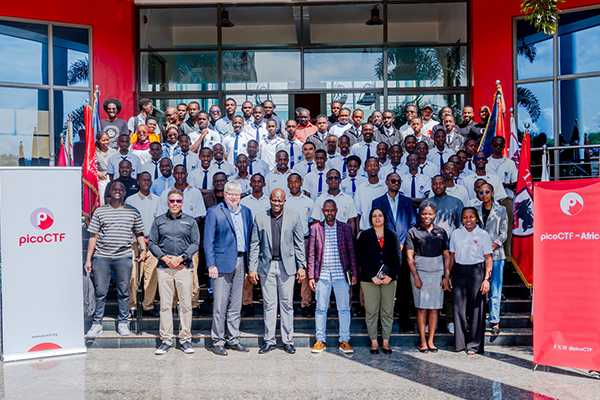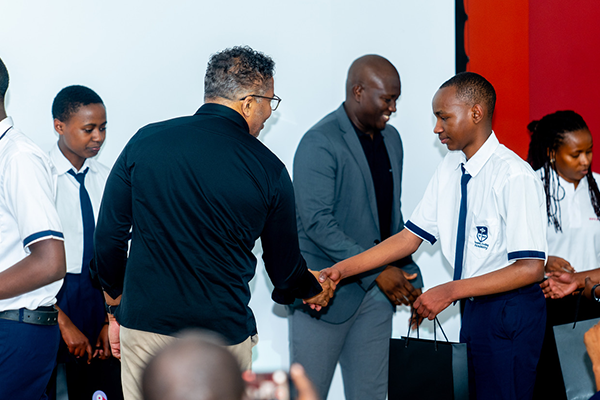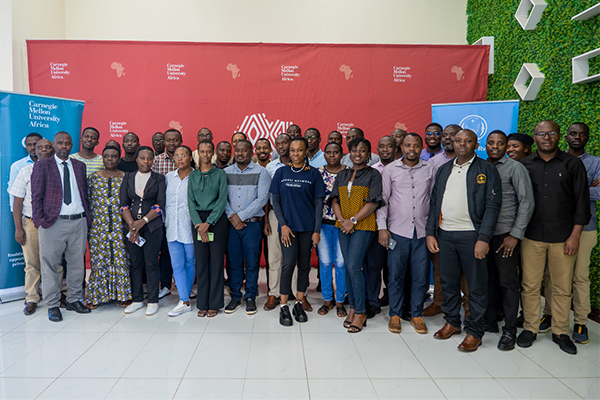picoCTF-Africa returns with a continent-wide training tour
Amber Frantz
Jun 2, 2025
The world's largest free hacking competition returned for its fourth year in Africa this spring. From March 10–17, Carnegie Mellon University's picoCTF-Africa invited students from across the continent to compete in a 10-day "capture the flag" computer security competition, where participants were introduced to the field of cybersecurity.
Prior to the competition in March, the picoCTF-Africa team trained 200-400 students in each of the 13 countries they visited as a part of their new continent-wide training tour. Students aged 13-25, along with teachers, were trained on several cybersecurity topics, including programming, web technologies, computer forensics, reverse engineering, and binary exploitations. After training, students were able to use their newfound skills to enter the competition.
"Seeing students get excited about learning when playing on the picoGYM and picoCTF platform is very fulfilling," said Lenah Chacha, CyLab-Africa's lab manager. "Today we have high school students who have decided to take an undergraduate degree in cybersecurity from all over the world."
The competition itself drew over 1,700 participants, a 21 percent increase from the previous year. For the past four years, picoCTF-Africa has maintained its own leaderboard, recognizing the top three undergraduate and high school teams in Africa along with a women in cybersecurity award. This year, the competition expanded its individual country awards to include the countries the training team visited.
As the picoCTF-Africa program continues to grow and attract more students, Africa's cyberspace will benefit from an increased number of cybersecurity professionals trained to safeguard against malicious attacks. The expansion of the program further promotes picoCTF's educational mission by providing the necessary skills and resources needed to empower Africa’s future cybersecurity leaders.
"During our training we interact with students from computing and non-computing backgrounds, and one of our goals is to ensure that all students think about the cybersecurity implications of their work," said Chacha. "After all, people are one of the most important pillars of cybersecurity. We want these students to be aware and become educators in society."
The awards ceremony for the 2025 competition took place on May 13.
Winners of the African leaderboard
Top three undergraduate teams in Africa
- M3V7R
- W4554NG4R1
- Black Turbans
Top three high school teams in Africa
- God's Discipline
- PegaSus
- L1nP345
Women in cybersecurity
- La_CaSa
Ethiopia-only leaderboard
Undergraduate
- funsociety
Botswana-only leaderboard
Undergraduate
- Lost Flag
Ghana-only leaderboard
High school
- DPSI
Morocco-only leaderboard
Undergraduate
- Blackops
Uganda-only leaderboard
Undergraduate
- St. Lawerence Uganda 1
High school
- Wealth
Rwanda-only leaderboard
Undergraduate
- ACSC
- Binary Duo
High school
- God's Discipline
- PegaSus
Women in cybersecurity
- Binary Duo
- La_CaSa
Zimbabwe-only leaderboard
Undergraduate
- PeppaPig
Women in cybersecurity
- Nexus
Carnegie Mellon University and the Upanzi Network were the official sponsors of the program along with partnerships from Rwanda, Zimbabwe, Botswana, Morocco, Senegal, Ethiopia, Uganda, Benin, Cameroon, Ghana, Algeria, Malawi, and Equatorial Guinea.



